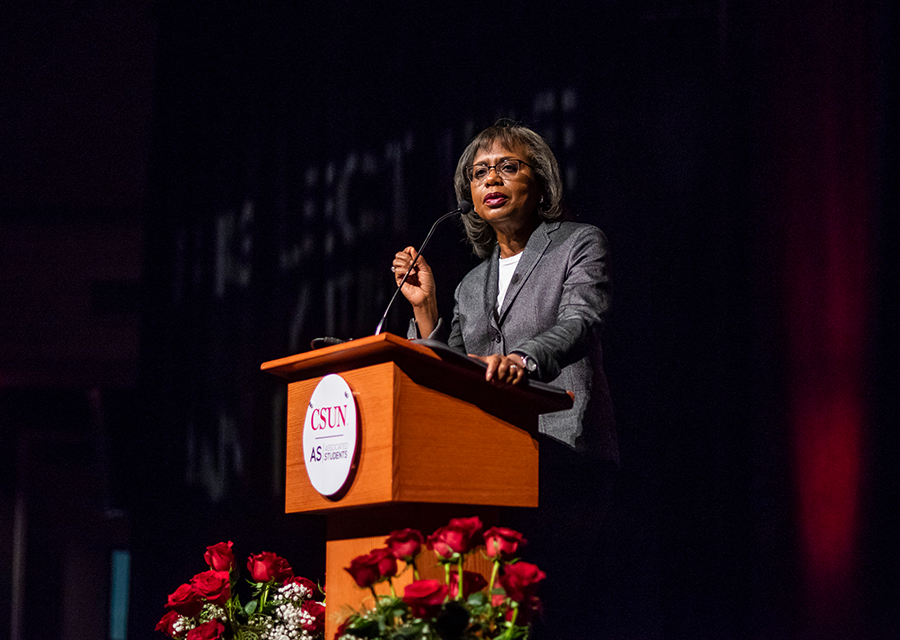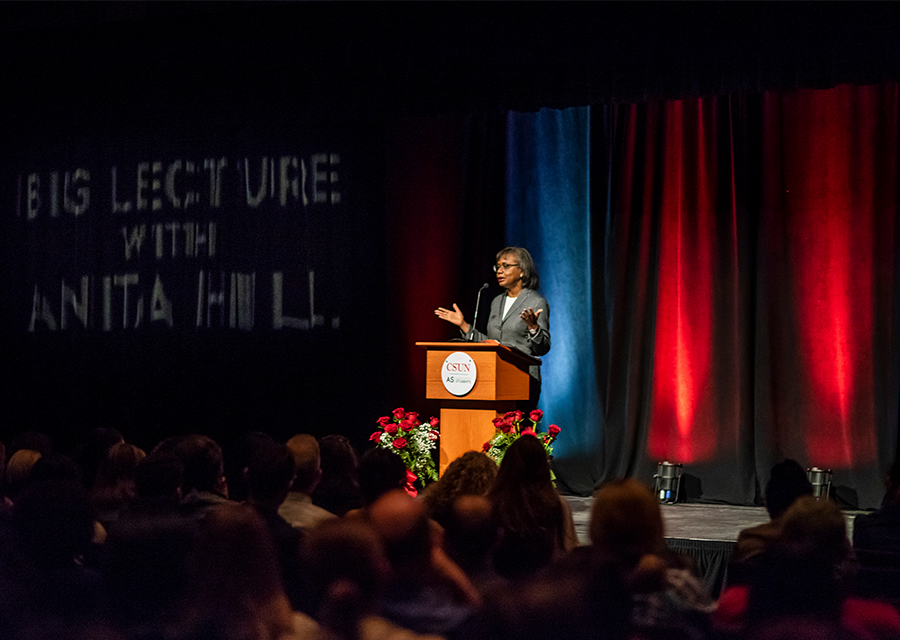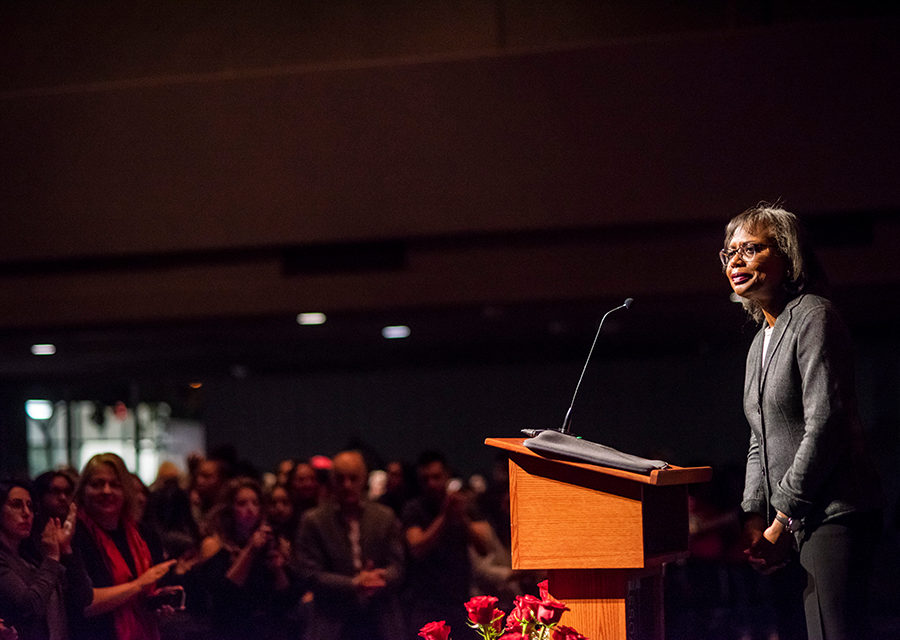Equality Icon Anita Hill Inspires Change
Anita Hill, the attorney, professor and advocate for gender and racial equality who, in the early 1990s, helped further America’s understanding of sexual harassment, came to CSUN on Nov. 7 to talk to hundreds of students about what’s changed — and much that has not.
“I want us to think about where we are right now,” Hill said.
For Hill, who gave historic testimony during the 1991 confirmation process of Supreme Court Justice Clarence Thomas, “now” is the wake of the #MeToo movement of 2017 and the 2018 Supreme Court confirmation hearings of Justice Brett Kavanaugh. Kavanaugh, who was confirmed to the highest court, was accused of sexual assault or misconduct by multiple women.
“With the #MeToo movement, we realized that the problems were not about the individual — they were about the institutions,” Hill said. In Hill’s eyes, the #MeToo movement was a time of hope and recognition, she said. That was why it was so disheartening for advocates such as Hill to see that momentum followed by an event that was so eerily familiar to one she lived more than a quarter-century before, she added.
“No one in 2017 thought that there was going to be a Senate confirmation hearing that reminded us of what happened in 1991, 27 years ago,” she said. However, Hill said, she doesn’t want changemakers to feel dejected — she implored her audience to think about what society has learned since 1991, and what more can be learned.
When Hill walked out onto the Northridge Center stage at the University Student Union to deliver the annual Associated Students Big Lecture, she received a standing ovation and thunderous applause. Such emphatic sounds were heard all night, as students, faculty and staff cheered, snapped and booed, when appropriate. Audience members sat captivated as she talked about the long and rich history of the fight for justice against sexual harassment, beginning in the 1970s and leading to 1991.
Aubrey Golding, a fourth-year sociology major, was one of those Matadors in the audience.
“I’m here because legends who paved the way for women of our generation and future won’t be around forever. Since I had the opportunity, I had to come,” Golding said.
Hill’s testimony before the U.S. Senate in 1991 changed the course of American history and shined a light on the long-festering issue of sexual harassment.
Hill noted that black women were plaintiffs at the center of many landmark sexual harassment cases, a fact that was not lost on her. In her lecture, she repeatedly brought up the importance of fighting for racial justice and other marginalized communities alongside the fight for gender equality.
True change must happen at the systemic and institutional levels, Hill said. That means advocating for those who are at the margins — women of color, the transgender and diverse LGBTQIA+ communities, those who suffer religious persecution, and male survivors of sexual violence.
Progress may be slow, and sometimes disheartening, but change will happen, she said. Hill wove that point throughout her lecture. She shared a personal anecdote about how each subsequent generation on the maternal side of her family had gained access to better education and more opportunities. She noted that even though Justice Clarence Thomas was confirmed after her testimony, social, cultural, political and legal changes for the better did take place.
When Anita Hill testified on Capitol Hill in 1991, she sat alone in front of a crowd of reporters and witnesses — and facing rows of senators — and spoke her truth to a skeptical audience. The difference between her testimony to Congress and the one at CSUN was stark. At CSUN, she spoke to a captive and inspired audience, something that she said will keep her galvanized for the rest of the year.
“We are ready for change, and this is the moment.”




 experience
experience